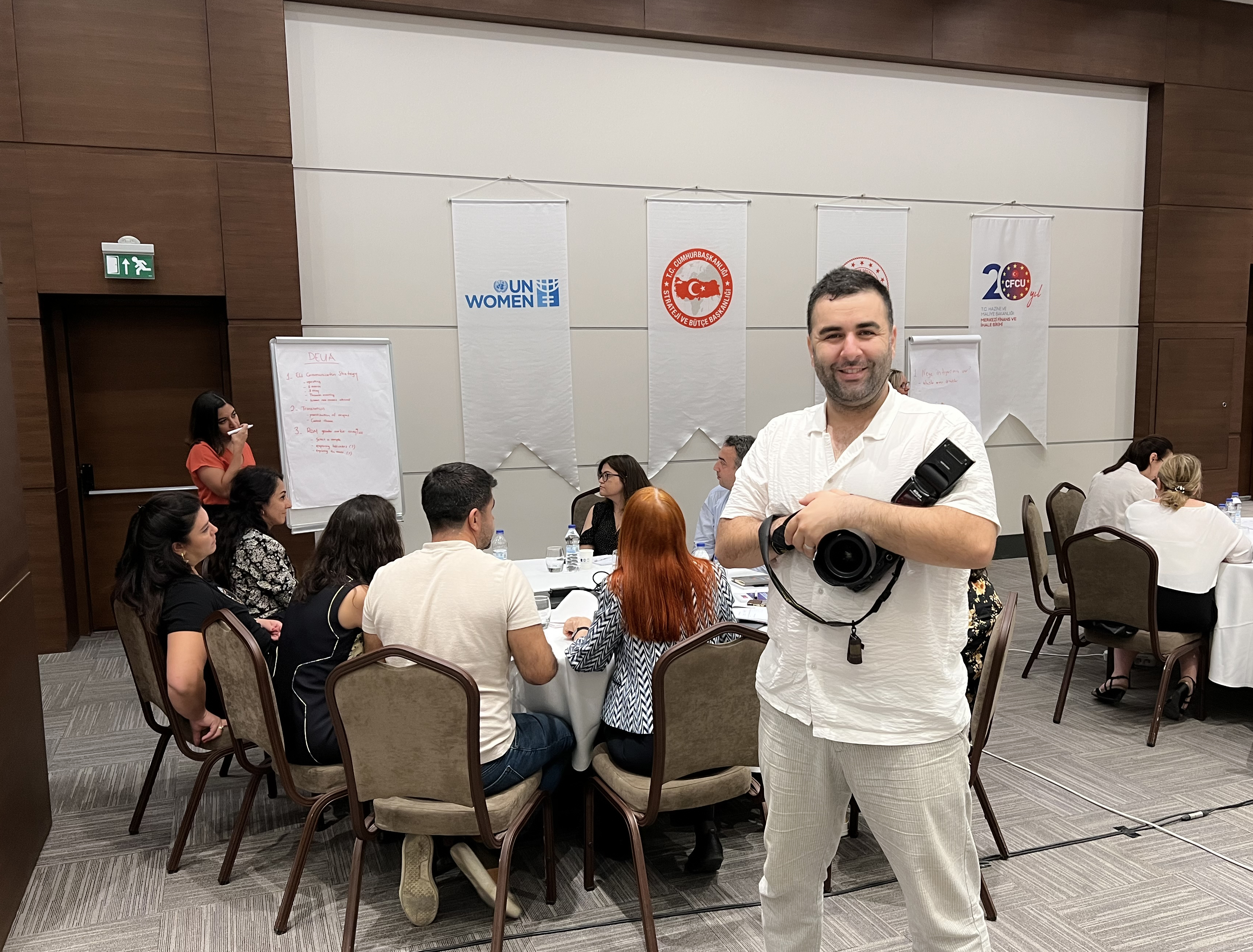In the Words of Ender Baykuş: “I believe in gender equality and think everyone should be part of the change”
Date:

Ender Baykuş is a former journalist and photographer, based in Ankara, the capital of Türkiye. His perspective on gender equality changed when his path crossed with UN Women as a photographer. While taking pictures at different trainings and workshops, Baykuş has gained a better understanding of gender equality and women’s empowerment. Now, he shares what he has learned with his family and friends and speaks up against gender inequalities. He is proud of being a gender equality advocate and calls on everyone to be part of the change.
“I spent my childhood in a village in Türkiye. My father was an idealistic teacher. He used to struggle with families who withdrew their children from school. He convinced them and ensured children, especially girls, went back to school. However, I remember that he wasn’t very keen on the idea of my mother working. As a child, I used to wonder why my mother had to make decisions based on my father’s opinion.
We then moved to Ankara and my mother started to work. She became a more confident person and started to make decisions and express her ideas openly. My mother’s involvement in work life changed the dynamics in the household in a positive way.
I studied radio, cinema, and television and worked as a photojournalist. After that, I established my own company to provide photography and video services. That’s how my path crossed with UN Women. I have worked as a photographer and videographer in many of UN Women’s workshops and activities.
I realized I actually have been a participant in those activities and I got to know how UN Women fights for gender equality and struggles with persisting inequalities in society. After each training, I saw my way of thinking was changing.
It has not been easy to move away from the sexist language that I hear around or from stereotypes such as “a mother should stay at home, housework is her duty, she is responsible for taking care of the children,” which are considered the norm in our families. However, I felt encouraged to challenge my family or friends’ sexist comments or jokes.
When I began to talk about what I have learned at UN Women trainings, I was not surprised to encounter resistance in my circles. But it was easy for me to overcome these barriers. As a journalist, I have no difficulty in expressing myself and I can attract the attention of people. I think I have my mother’s determination and my father’s idealism.
There have been changes in my own family life as well. My wife is from Bosnia and Herzegovina. Our cultural background is different and we couldn’t have a mutual understanding on some issues. I thought doing housework, changing my child’s diapers, or cooking was a blessing that I was offering to her. I was expecting compliments after everything I did at home. Yet, these are considered ordinary tasks in my wife’s family. At one of UN Women’s trainings, I realized that these actions mean nothing but being a good partner and a good father. I remember that there were times when I forgot to take photos while listening. My wife is aware of the change. I can say that my life just got easier.
I believe in gender equality – ‘the equal participation of women and men in all areas of social life’ and I think that everyone should be part of the change.